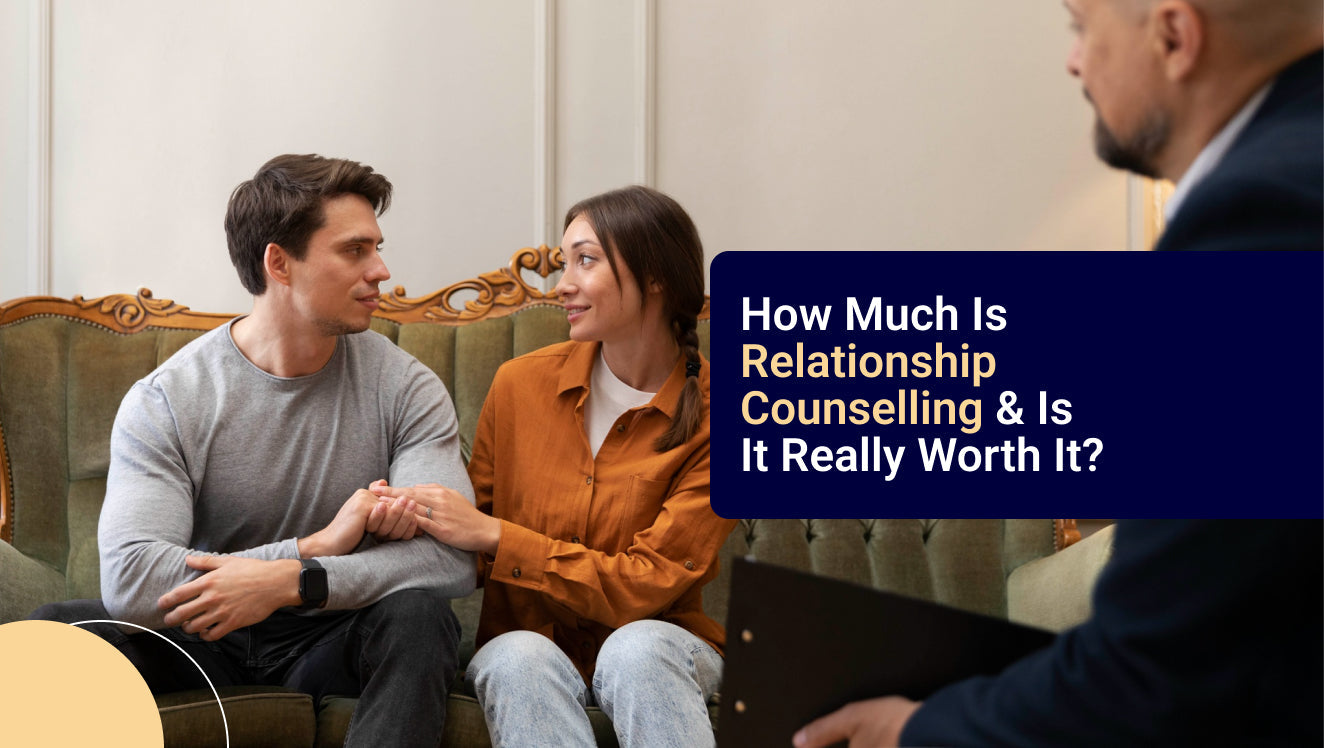Relationships do not come with an instruction manual. When the same arguments repeat or distance grows, many couples wonder: How much does relationship counseling cost? And is it really worth the money and time?
If you are considering couples therapy, this guide explains what you can expect to pay, what affects the cost, and why so many couples say the benefits are worth every penny.
Why Do Couples Seek Counseling?
Every couple has rough patches. Some partners drift apart slowly. Others get stuck in the same conflicts over and over. Common reasons couples seek therapy include:
-
Communication problems or constant arguments
-
Trust issues or infidelity
-
Parenting conflicts or family stress
-
Feeling distant, disconnected, or unheard
-
Wanting clarity about whether to stay together or separate
Relationship counseling can help partners break unhealthy cycles, rebuild trust, and reconnect on a deeper level.
Many of these challenges are rooted in emotional stress, mental overload, and poor sleep all of which can affect how we communicate and connect with our partners.
This is where tools like neuroVIZR can be helpful alongside therapy. By supporting emotional regulation, focus, and brain resilience through light and sound-based neuroplasticity stimulation, it helps individuals show up more calmly and clearly in their relationships.
How Much Does Relationship Counseling Cost?
On average, relationship counseling costs between 100 and 250 dollars per session.
Several factors influence this range:
-
Therapist’s credentials and experience: Specialists in couples or marriage therapy usually charge higher fees.
-
Location: Therapy (Counseling) in major cities is often more expensive than in smaller towns.
-
Session length and frequency: A standard session lasts about 50 to 60 minutes. Longer or more intensive sessions cost more.
-
Virtual or in-person: Online counseling can sometimes be 10 to 30 percent cheaper than in-person sessions.
Most couples attend sessions weekly. Weekly sessions help maintain progress and momentum. Depending on your goals, you might commit to 12 to 20 sessions or more.
Typical out-of-pocket cost:
|
Service |
Average Cost |
|
Licensed Therapist |
$100–$250/session |
|
Associate Therapist |
$75–$150/session |
|
Sliding Scale/Low-Cost Clinic |
$10–$50/session |
|
Virtual Counseling Subscription |
~$60–$100/week |
Is Couples Therapy Covered by Insurance?
In many cases, couples counseling is not covered by insurance because it is not considered medically necessary.
However, if one partner has a diagnosed mental health condition such as depression or anxiety, some sessions might qualify for insurance reimbursement.
Many therapists also offer sliding scale fees based on income. If you need a lower cost option, look into:
-
Associate or pre-licensed therapists who work under supervision
-
University training clinics where student therapists offer reduced-cost sessions
-
Community centers or nonprofit organizations
-
Employee Assistance Programs that include short-term counseling
What Happens in a Couples Therapy Session?
A good therapist provides a safe, neutral space for both partners to share their thoughts and feelings. Sessions often focus on:
-
Understanding what triggers conflict
-
Practicing healthier ways to communicate and listen
-
Learning tools to manage disagreements and stress
-
Rebuilding trust and intimacy if it has been damaged
Think of therapy as skills training for your relationship. The real work happens both in and outside the sessions. Sometimes therapies can also lead to break in a relationship.
How Do You Choose the Right Couples Therapist?
The right fit matters. When searching for a couples therapist, consider these questions:
-
Are they licensed and experienced in relationship or marriage counseling?
-
What is their approach? Do they focus on conflict resolution, communication, emotions, or deeper patterns?
-
Do they offer a free phone call or consultation so you can decide if they feel like a good match?
A good therapist should make you feel heard, respected, and comfortable.
Is Relationship Counseling Really Worth It?
When you see the price tag, it’s normal to wonder: Is it worth spending thousands of dollars just to talk?
Here’s the honest truth: Counseling isn’t magic. But when both partners show up and do the work, it can help you:
-
Understand each other’s needs and triggers
-
Break toxic communication cycles
-
Rebuild trust after betrayal or drift
-
Make decisions about the future together
In fact, according to the American Association for Marriage and Family Therapy, over 97% of surveyed couples said they got the help they needed through counseling.
Compared to the financial and emotional cost of breakups, divorces, and long-term resentment, many find therapy to be a smart investment in their peace of mind and future happiness.
How To Make Relationship Counseling Affordable
-
Don’t let the price scare you off. Many couples find ways to lower the cost:
-
Look for therapists who offer sliding scale fees based on your income.
-
Consider virtual counseling often more budget-friendly.
-
Check university training clinics for low-cost sessions with student therapists under supervision.
Final Thoughts
Healthy relationships take effort and sometimes outside support. While relationship counseling is not free, many couples see it as one of the best investments they have ever made for their peace of mind, family, and future. If you feel disconnected or stuck in the same arguments, counseling can help you understand each other, communicate better, and decide what is best for both of you.
A single honest conversation with a skilled therapist might be the first step back to clarity, trust, and connection.
Disclaimer: neuroVIZR is a wellness device created to promote relaxation, focus, and overall brain wellness. It is not a medical device, does not provide diagnoses, and is not intended to treat, cure, or prevent any medical condition. The device is not suitable for individuals with epilepsy. Experiences and results may vary from person to person.



























Share:
What Does Taking a Break in a Relationship Mean?
What Kills Long-Distance Relationships? Key Reasons and Real-Life Lessons